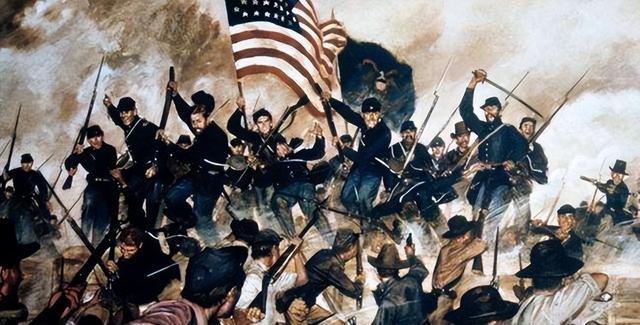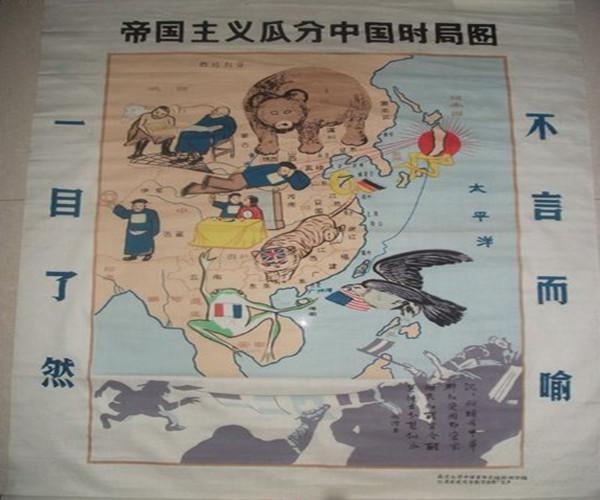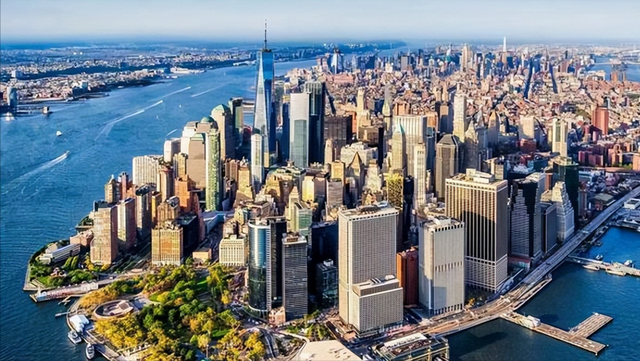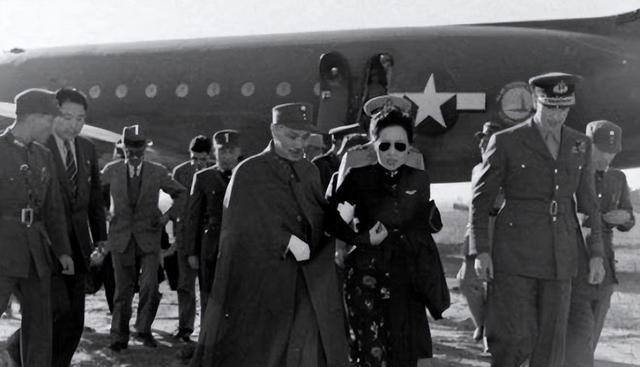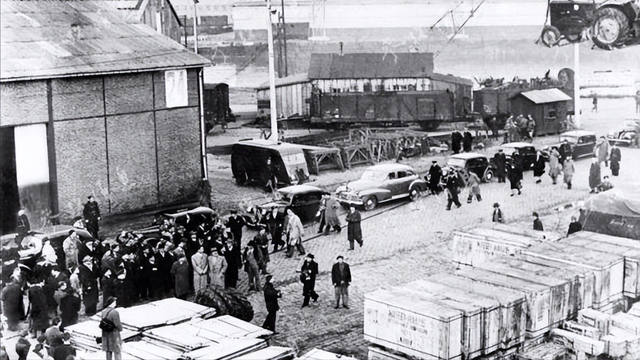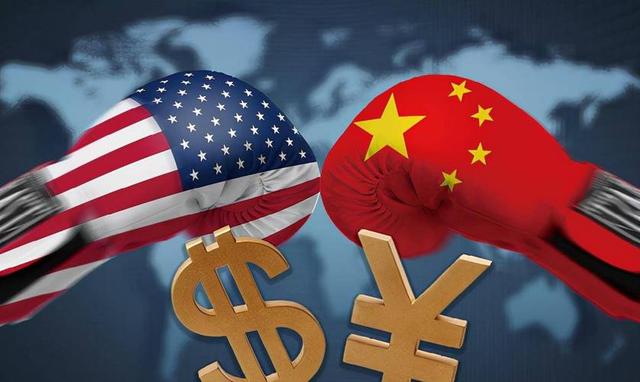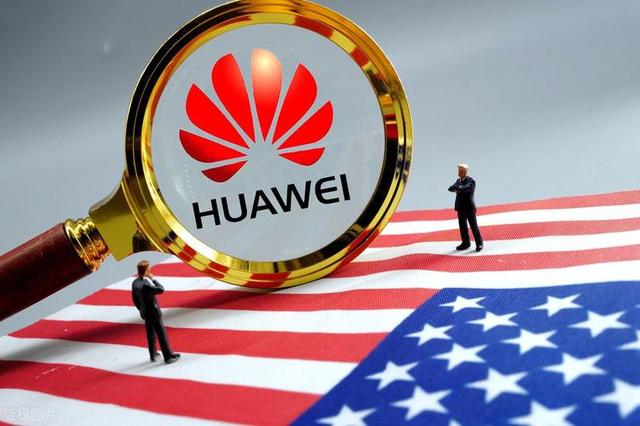今天的世界格局,正在發生了劇烈的變動。
曾幾何時以美國爲首的霸權主義,征服了大半個世界,他們的航母囂張跋扈,所到之處無不是生靈塗炭。
美國爲了壟斷石油,不惜挑起戰爭,讓波斯灣地區陷入不休的爭鬥,而它們自己則充當著“軍火商”的角色,四處兜售武器發昧心財。
在過去的一個世紀裏,不管是冉冉升起的亞洲,還是遍地饑餓的非洲,只要美國政府願意,就沒有它們插手不到的地方。
白宮的那群政客,爲達目的可以不擇手段,小到暗殺大到顛覆,全都是手到擒來。
當中國這頭東方巨龍再次蘇醒之時,一些美國網友開始頻頻在美版知乎Quora上發問:美國政府爲何不在中國崛起前徹底征服它,以絕後患?
對于這個問題,美國的高層人士和專業分析家給出了各自的看法。
其中有些觀點讀來令人耳目一新,印象深刻,今天就讓我們一同看一看。
問題:美國爲什麽不征服中國?
美國前國會助手,聯邦雇員 布拉德伯裏的回答
I feel like there are four reasons:
ONE— This is going to come as a surprise to hear to many of you but the USA generally loathed European style Imperialism. This statement might leave some of you cross-eyed and there’s a fine hair to split here that is worthy of digging in to another time. Per American attitudes: The USA was a colonized nation who threw off the shackles of an imperious overlord. We were the underdogs who beat the Goliath and secured our independence. The USA simply didn’t like that kind of imperialism.
And here’s where the hair-splitting gets interesting. The USA — of course — conquered the land within its territory (belonging to the Natives). Later on it invaded Japan but never attempted to conquer the Islands. The US simply wanted open markets for trade (which is a window into the American imperial mentality and sets the framework for the next century). The USA did assume control over Cuba, Puerto Rico, Philippines, and Guam after clobbering those Flamenco Dancing Spaniards, but Cuba was given independence in 1902 (and meddled with, but that’s another story for another time).
The USA did conquer the Kingdom of Hawai’i and did invade Colombia . . . er, Panama to build the canal, but again, all of these (admittedly) really hypocritical double-standards really did make sense to the US back in the “White Man’s Burden” days. I’m not legitimizing it, but the USA truthfully saw itself as the dismantler of European Empires and the protector of the colonized nations of the Americas.
But here’s a really big thing to remember: Americans absolutely loathed European imperialism. Various anti-imperial organizations and groups were founded. The US’s really notable non-American Continent imperialism is the Philippines. The US liked having it as a base of operations and an economic outpost, but even that was a thorn in the side of the US government and (back when people cared about these things) it was a huge hypocritical statement while the USA was actively campaigning to get European colonial powers out of the Americas.
我覺得有四個原因:
第一 這會讓你們中的許多人感到驚訝,但美國普遍厭惡歐洲式的帝國主義。這句話可能會讓你們中的一些人眼花缭亂,這裏有一根細毛要分開,值得下次再挖掘。根據美國人的態度: 美國是一個擺脫了專橫霸主枷鎖的殖民國家。我們是擊敗歌利亞並確保我們獨立的失敗者。美國根本不喜歡那種帝國主義。
這就是頭發分裂變得有趣的地方。美國——當然——征服了其領土內的土地(屬于土著人)。後來它入侵日本,但從未試圖征服這些島嶼。美國只是想要開放的貿易市場(這是了解美帝國主義心態的窗口,並爲下個世紀奠定了框架)。在擊敗那些弗拉門戈舞的西班牙人之後,美國確實控制了古巴、波多黎各、菲律賓和關島,但古巴在 1902 年獲得了獨立(並受到了幹預,但那是另一回事了)。
美國確實征服了夏威夷王國並入侵了哥倫比亞。. . 呃,巴拿馬來修建運河,但同樣,所有這些(誠然)非常虛僞的雙重標准在“白人的負擔”時代對美國來說確實是有意義的。我沒有將其合法化,但美國真實地將自己視爲歐洲帝國的瓦解者和美洲殖民地國家的保護者。
但要記住一件非常重要的事情:美國人絕對厭惡歐洲帝國主義。成立了各種反帝組織和團體。美國真正值得注意的非美洲大陸帝國主義是菲律賓。美國喜歡把它作爲行動基地和經濟前哨,但即便如此,這也是美國政府的眼中釘,而且(當人們關心這些事情的時候)這是一個巨大的虛僞聲明,而美國正在積極競選把歐洲殖民大國趕出美洲。
美國趕跑英國殖民者
TWO— by the time the USA reached sufficient military and economic strength to effectively extend its influence overseas (no earlier than 1890 but more likely about 1900), China had been gobbled up by Europeans as spheres of influence. China proper was never really colonized the way Indonesia, Indochina or India were, but there were economic spheres of influence dominated by Japan, Russia, Germany, France and Britain. The US was sitting comfortably in the Philippines watching the Europeans scramble for China, smugly thinking that she was doing better by the Philippines.
第二——當美國達到足夠的軍事和經濟實力以有效地將其影響力擴展到海外時(不早于 1890 年,但更有可能是 1900 年左右),中國已被歐洲人吞並爲勢力範圍。中國本土從來沒有像印度尼西亞、印度支那或印度那樣真正被殖民過,但日本、俄羅斯、德國、法國和英國主導著經濟勢力範圍。美國在菲律賓舒舒服服地看著歐洲人爭奪中國,得意地認爲菲律賓做得更好。
歐洲列強在華勢力圖
THREE— The USA saw that European Empires were in their twilight. There was little doubt at the time that most European Empires were going to collapse within the century. The USA didn’t want to spend its blooming years engaging in overseas empire-building. Having seen what Europeans invested and sunk into these empires, the USA preferred (here’s this again) economic trade to enrich itself and the economic imperialism that came with it (which is cheaper to maintain and a shit-ton more profitable). And the USA was proved right. By the end of World War I, the cracks had set in and by the end of the Second World War, they’d all but collapsed.
第三——美國看到歐洲帝國正處于暮光之城。當時毫無疑問,大多數歐洲帝國將在本世紀內崩潰。美國不想將其蓬勃發展的歲月花在海外帝國建設上。在看到歐洲人投資並沉入這些帝國之後,美國更喜歡(又是這個)經濟貿易來豐富自己以及隨之而來的經濟帝國主義(維持成本更低,利潤更高)。美國被證明是正確的。到第一次世界大戰結束時,裂縫已經出現,到第二次世界大戰結束時,它們幾乎都倒塌了。
美國的經濟霸主地位
FOUR— the USA had pretty much everything it needed at home — frankly, there just wasn’t a need to go looking for it anywhere. By 1890, the size and shape of the USA had solidified. The USA was the largest single economy (unless you count the entire British Empire). The USA was the world’s largest industrial producer, largest agricultural producer and largest petrol producer. Moreover, the USA was largely.
第四——美國幾乎擁有了它在家裏需要的一切——坦率地說,沒有必要去任何地方尋找它。到 1890 年,美國的規模和形狀已經固化。美國是最大的單一經濟體(除非你算上整個大英帝國)。美國是世界上最大的工業生産國、最大的農業生産國和最大的石油生産國。此外,美國在很大程度上人口不足,擁有大量的土地——就資源、農業和生活空間而言,足以滿足國家對資源、農業和生活空間的需求(1900 年爲 7600 萬人,而今天爲 3.15 億人)。
美國豐富的自然資源
美國網友的回答
The United States tried many times and failed. The earliest incident was when America was actually the late comer in Europe bid to conquer China. This was named the “spheres of influence” where America tried desperately to be included in Europe’s combined occupation of the country. Because of their greed the European nations agreed to share occupation of China which led to resentment and greed (some nations thought they weren’t given enough territory) and that caused splintering which all fed into the world wars.
After the failure of the spheres of influence America’s next attempt was to set up a puppet regime. It poured support into the Kuomingtang and gave it ammunition and military training to help their struggles against Japan. What it counted on was that greed and the desire to rule China would let them control Chiang Kai-shek and his regime. What they didn’t understand was that yes Chiang was greedy and yes he did want to be king and rule China and he was so greedy that he would never let himself be under the control of America either. So it ended up the Kuomingtang just used as much of American support as they could but not to defeat the Japanese but to consolidate power in China in a bid to rule China first then take care of all the foreign entities like Japan and America.
Thanks to that greed the Kuomingtang fell out of favor in China very quickly leading to the Communists being named the ones that defeated the Japanese and saved China. That led to them winning the civil war and pushing the Kuomingtang to an isolated little island territory where America failed in their second attempt to conquer China.
美國嘗試了很多次,都失敗了。最早的事件是美國實際上是歐洲征服中國的後來者。這被命名爲“勢力範圍”,美國拼命試圖將其納入歐洲對該國的聯合占領。由于他們的貪婪,歐洲國家同意共同占領中國,這導致了怨恨和貪婪(一些國家認爲他們沒有得到足夠的領土)並導致分裂,這一切都助長了世界大戰。
在勢力範圍失敗後,美國的下一次嘗試是建立傀儡政權。它向國民黨傾注了支持,並爲其提供了彈藥和軍事訓練,以幫助他們抗擊日本。它指望的是,貪婪和統治中國的願望會讓他們控制蔣介石和他的政權。他們不明白的是,蔣是貪婪的,是的,他確實想成爲國王並統治中國,而且他是如此貪婪,以至于他也永遠不會讓自己處于美國的控制之下。所以最終國民黨只是盡可能多地利用美國的支持,但不是爲了打敗日本人,而是爲了鞏固中國的權力,先統治中國,然後照顧日本和美國等所有外國實體。
由于這種貪婪,國民黨很快在中國失寵,導致共産黨人被命名爲擊敗日本和拯救中國的人。這導致他們贏得了內戰,並將國民黨推向了一個孤立的小島領土,美國在第二次征服中國的嘗試中失敗了。
蔣介石戰敗退往台灣
So moving onto their third attempt. Since the Kuomingtang failed they needed American support more than ever to try and gain back their lost power. America gave them that support hoping there was something there. But at the same time America attacked Korea hoping that if they could conquer Korea (either directly or by establishing the southern regime as a puppet government) then they’d have another way into China. Of course we know this failed. Korea was split in half where America’s puppet regime in South Korea was bordered by North Korea which served as a buffer against invasion by US forces into China.
The fourth attempt was Vietnam. Same thing. America attacked hoping to set up a puppet regime with one group of Vietnamese while Ho Chi Minh the celebrated leader received help from China. The Vietnam War was even worse for America as not only did they not get their pupper regime set up but they flat out lost the war. It served as both humiliating for America who has since tried not to talk about it while being seen by the world over that even a China as weak as the one from that time was still strong enough to repel America.
After that America cooled off its attempts. It did try but it was much more subtle. The Taiwan Strait incidents were minor attempts that I’m sure they knew wouldn’t really work but it was just a way to keep China’s attention on being at war instead of rebuilding their wartorn country. America also started to turn enemies into allies with giving tons of support to Japan to rebuild their country. (After WWII America basically owned Japan anyway.) They also gave support to Communist Vietnam and the Phillippines and India all countries bordering China. Of course we know what happened with Japan. Just like Kuomingtang were too greedy for America to control Japan was too smart and used that support to build into the tech sector so fast that it started to overtake America’s tech sector. So America stopped support which caused the Japanese economy to tank which is where it has been ever since and then America went and supported Korea instead which is why Samsung and LG are so big right now.
所以繼續他們的第三次嘗試。自從國民黨失敗後,他們比以往任何時候都更需要美國的支持來試圖奪回失去的權力。美國給了他們支持,希望那裏能有所作爲。但與此同時,美國攻擊韓國,希望如果他們能夠征服韓國(直接或通過建立南方政權作爲傀儡政府),那麽他們就有另一種方式進入中國。我們當然知道這失敗了。韓國被一分爲二,美國在韓國的傀儡政權與朝鮮接壤,朝鮮作爲美國軍隊入侵中國的緩沖地帶。
第四次嘗試是越南。一樣。美國發動進攻,希望與一群越南人建立傀儡政權,而著名的領導人胡志明則得到了中國的幫助。越南戰爭對美國來說更糟,因爲他們不僅沒有建立他們的傀儡政權,而且還徹底輸掉了戰爭。這對美國來說既是一種羞辱,它也曾試圖不談論它,而在全世界看來,即使是像那個時代那樣弱小的中國仍然強大到足以擊退美國。
在那之後,美國冷卻了它的嘗試。它確實嘗試過,但它更微妙。台海事件是一些小嘗試,我相信他們知道不會真正奏效,但這只是一種讓中國將注意力集中在戰爭而不是重建他們飽受戰火的國家的方式。美國也開始將敵人變成盟友,並大力支持日本重建國家。(無論如何,二戰後美國基本上擁有日本。)他們還支持共産主義越南以及菲律賓和印度所有與中國接壤的國家。我們當然知道日本發生了什麽。就像國民黨太貪心美國無法控制日本一樣,日本太聰明了,利用這種支持迅速進入科技行業,以至于它開始超越美國的科技行業。
二戰後美國扶持日本
All of this boiled down to a fifth attempt where the strategy was to destabilize China by supporting all the countries around it to point their fingers at it and cause it problems along every last border. You’d think that China would finally cave and be taken over right? But as we know China somehow became an economic powerhouse and poured its own support into neighboring countries. Against India it supported Pakistan, Nepal and Bhutan. Against Vietnam and the Phillippines it supported Cambodia and Singapore. Then it supported Duterte’s Phillippines making it an ally. Against Japan and South Korea it supported North Korea and allied itself with the Russian Federation. Now it also supports South Korea.
As America’s allies in the region started to lost ground against China’s influence America was forced to support them militarily straining it since it was also engaged in war in the Middle East by this point. Meanwhile China spread its influence by joining tons of global initiatives and programs and making friends even further away from home like Brazil, Mexico, Eastern Europe and Africa. Its economy grew so fast that even those set up by America to antagonize China started to play both sides. Japan for example keeps teetering between being enemies and friendly with China. One day its accusing China of stealing its territories and another its cultivating trade relations. India is building ties with China so much that the top tech brands selling in the country are Chinese. South Korea recently demanded America to remove THAAD or at the very least remove its military presence in the country with President Moon building stronger ties with North Korea and China.
After that America had to move into another phase of this attempt. Trade War. So since its influence in the region and now even around the world is declining and it is spending so much on the global war effort (Afghanistan, Iraq, Egypt, Syria, Iran, Kuwait, Israel, Libya ect…) America realized it was time for nuclear options. In a bid to damage China’s economic surge it thought that adding tariffs to all imports from China would work. When that didn’t it expanded those tariffs to all countries including its allies hoping that damaging their economies would force them to side with America against China. This worked better than adding tariffs to China but is still not nearly enough. First the tariff attacks against China worked against America. After a year of the Trade War America ended up with an additional $30 billion trade deficit on top of a giant plunge in exports to China and even more imports from China. American allies like the UK and Canada bent to its will a little but not really far enough and attacking its allies like this only alienated Germany, India, New Zealand, Japan and others.
所有這一切都歸結爲第五次嘗試,其戰略是通過支持中國周圍的所有國家指責中國並在每一個邊界造成問題來破壞中國的穩定。你會認爲中國最終會屈服並被接管嗎?但正如我們所知,中國不知何故成爲了一個經濟強國,並向鄰國傾注了自己的支持。針對印度,它支持巴基斯坦、尼泊爾和不丹。針對越南和菲律賓,它支持柬埔寨和新加坡。然後它支持杜特爾特的菲律賓使其成爲盟友。針對日本和韓國,它支持朝鮮並與俄羅斯聯邦結盟。現在它也支持韓國。
隨著美國在該地區的盟友開始在中國的影響力面前失去陣地,美國被迫支持他們,在軍事上給它帶來壓力,因爲此時它也在中東卷入戰爭。與此同時,中國通過加入大量全球倡議和項目並結交離家鄉更遠的巴西、墨西哥、東歐和非洲等朋友來擴大其影響力。它的經濟增長如此之快,以至于連美國爲對抗中國而設立的那些人也開始扮演雙方的角色。例如,日本一直在與中國爲敵和友好之間搖擺不定。一方面,它指責中國竊取其領土,另一方面指責中國發展貿易關系。印度正在與中國建立如此多的聯系,以至于在該國銷售的頂級科技品牌都是中國人。
在那之後,美國不得不進入這一嘗試的另一個階段。貿易戰。因此,由于它在該地區乃至世界各地的影響力正在下降,並且在全球戰爭努力(阿富汗、伊拉克、埃及、敘利亞、伊朗、科威特、以色列、利比亞等)上花費了大量資金,美國意識到是時候了對于核選項。爲了破壞中國的經濟增長,它認爲對所有從中國進口的商品加征關稅會奏效。如果不是這樣,它將這些關稅擴大到包括其盟國在內的所有國家,希望損害他們的經濟會迫使他們站在美國一邊反對中國。這比對中國加征關稅效果更好,但還遠遠不夠。首先,針對中國的關稅攻擊對美國不利。經過一年的貿易戰,除了對中國的出口大幅下降以及從中國進口的增加之外,美國最終還出現了 300 億美元的貿易逆差。像英國和加拿大這樣的美國盟友稍微屈服于自己的意志,但還不夠遠,像這樣攻擊其盟友只會疏遠德國、印度、新西蘭、日本和其他國家。
中美貿易戰
So when America went another direction by targeting single Chinese companies like ZTE and now Huawei it really didn’t have anything to push with. When they banned ZTE what ended up happening was that American companies that had been selling to ZTE lost a huge chunk of their revenue since ZTE orders were all cancelled. On the other hand ZTE doubled down and teamed up with other Chinese companies to the point where it is still going strong and now isn’t banned because America needed to save their own companies. America tried more with Huawei but the first push against its leading 5G tech didn’t work. Even after it threatened its allies countries like the UK and Germany sided with Huawei anyway. The second push worked slightly better in that America just banned Huawei and extended that ban to include anything America sold to any company that might do business with Huawei. That forced companies like UK’s ARM to stop working with Huawei too. But all this did is slow Huawei down a little but it is still building 2/3s of the world’s 5G which will earn it a large profit and it also signalled to China to buy even less from America. Now you have Chinese companies like ARM rival TSMC helping Huawei and also MediaTek to create their own American component free products which are already outpacing the market leaders. In other words America’s fifth attempt is doing more to help China advance further and faster than if it hadn’t made any attempt at all.
因此,當美國轉向另一個方向,針對像中興和現在的華爲這樣的單一中國公司時,它真的沒有什麽可推動的。當他們禁止中興通訊時,最終發生的事情是,由于中興通訊訂單全部取消,一直向中興通訊銷售的美國公司損失了巨額收入。另一方面,中興加倍下注,與其他中國公司合作,直到現在它仍然很強大,現在沒有被禁止,因爲美國需要拯救他們自己的公司。美國對華爲進行了更多嘗試,但對其領先 5G 技術的第一次推動沒有奏效。即使在它威脅到英國和德國等盟國之後,它仍然站在華爲一邊。第二次推動的效果稍微好一些,因爲美國剛剛禁止了華爲,並將禁令擴大到包括美國出售給任何可能與華爲有業務往來的公司的任何東西。這也迫使英國 ARM 等公司停止與華爲合作。但這一切只是讓華爲慢了一點,但它仍在建設全球 2/3 的 5G 網絡,這將爲其賺取巨額利潤,同時也向中國發出信號,向美國發出更少購買的信號。現在你有像 ARM 競爭對手台積電這樣的中國公司幫助華爲和聯發科創建自己的美國無組件産品,這些産品已經超過了市場領導者。換句話說,美國的第五次嘗試,是在幫助中國走得更遠、更快地前進,而不是完全沒有嘗試。但這一切只是讓華爲慢了一點,但它仍在建設全球 2/3 的 5G 網絡,這將爲其賺取巨額利潤,同時也向中國發出信號,向美國發出更少購買的信號。現在你有像 ARM 競爭對手台積電這樣的中國公司幫助華爲和聯發科創建自己的美國無組件産品,這些産品已經超過了市場領導者。換句話說,美國的第五次嘗試,是在幫助中國走得更遠、更快地前進,而不是完全沒有嘗試。但這一切只是讓華爲慢了一點,但它仍在建設全球 2/3 的 5G 網絡,這將爲其賺取巨額利潤,同時也向中國發出信號,向美國發出更少購買的信號。現在你有像 ARM 競爭對手台積電這樣的中國公司幫助華爲和聯發科創建自己的美國無組件産品,這些産品已經超過了市場領導者。換句話說,美國的第五次嘗試,是在幫助中國走得更遠、更快地前進,而不是完全沒有嘗試。現在你有像 ARM 競爭對手台積電這樣的中國公司幫助華爲和聯發科創建自己的美國無組件産品,這些産品已經超過了市場領導者。換句話說,美國的第五次嘗試,是在幫助中國走得更遠、更快地前進,而不是完全沒有嘗試。現在你有像 ARM 競爭對手台積電這樣的中國公司幫助華爲和聯發科創建自己的美國無組件産品,這些産品已經超過了市場領導者。換句話說,美國的第五次嘗試,是在幫助中國走得更遠、更快地前進,而不是完全沒有嘗試。
美國制裁華爲
So America goes another way. Instead of just attacking economically or diplomatically or militarily it decides to use kidnapping. In December 2018 America used its influence over ally Canada to force it to capture Huawei executive Meng Wanzhou and detain her. This was a bid to force Huawei to give up and obey. But what ended up happening was that Huawei stood its ground and publicized the incident. Before this happened Huawei was hardly popular in the west. Most people only knew it as some mid-range low-quality tech company with an obvious Chinese name synonymous with poor quality and cheap prices. After the incident Huawei became a household name and support for the company reached unprecedented levels. When America expanded on the ban even more by stopping Google from providing its Android platform to it the world cheered for Huawei to release their Oak OS to break up the Android/iOS duopoly. Huawei’s become a folk hero.
So I’d say we could call America’s fifth attempt a failure too. The sixth attempt could likely be an Endgame for America. As its economy fails and its influence around the world wanes it might do the unthinkable and start a protracted nuclear war against China. Of course if it were to do this then all support around the world would immediately end and America would essentially be fighting a war against the entire world. So it would likely fail too. But we’ll see what that sixth attempt ends up being.
所以美國走另一條路。它決定使用綁架,而不是僅僅在經濟、外交或軍事上進行攻擊。2018年12月,美國利用其對盟友加拿大的影響力,迫使其抓獲華爲高管孟晚舟並拘留她。這是爲了迫使華爲放棄和服從。但最終發生的事情是,華爲站穩了腳跟,公開了這件事。在此之前,華爲在西方幾乎不受歡迎。大多數人只知道它是一些中檔低質量的科技公司,中文名稱明顯是劣質低價的代名詞。事件發生後,華爲家喻戶曉,對該公司的支持達到了前所未有的水平。當美國通過阻止谷歌向其提供 Android 平台來進一步擴大禁令時,全世界都爲華爲發布 Oak OS 以打破 Android/iOS 雙頭壟斷而歡呼。華爲成了民間英雄。
所以我想說我們也可以稱美國的第五次嘗試是失敗的。第六次嘗試可能是美國的終局之戰。隨著它的經濟衰退和它在世界範圍內的影響力減弱,它可能會做出不可想象的事情並開始對中國發動一場曠日持久的核戰爭。當然,如果這樣做,那麽世界各地的所有支持將立即結束,美國基本上將與整個世界進行一場戰爭。所以它也可能會失敗。但我們會看到第六次嘗試的結果。
美國拘留孟晚舟


